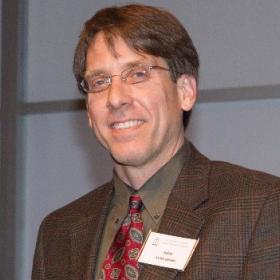
The UT Energy Symposium kicks off the semester by welcoming Professor John R Schramski of the University of Georgia's College of Engineering to give a talk titled "Food Security: Thermodynamics, Ecology, and Economics."
Speaker bio: John Schramski is a mechanical engineer and ecologist with 27 years’ experience in industry and academia focusing on mechanical design and thermodynamic modeling. He completed his BSME at the University of Florida in 1989, his MSME at University of Cincinnati in 1993 in conjunction with General Electric’s Advanced Courses in Engineering, and his PhD in Ecology at the University of Georgia in 2006. His research includes theoretical ecology, complex systems analysis, and the thermodynamics and energetics of the natural biosphere, civilization, and industry. Current funded projects include metabolic modeling of marine and terrestrial systems, energy return on energy invested analyses of sustainable agriculture, and global food security. He teaches undergraduate and graduate engineering thermodynamics and biosphere energetics.
Abstract of the talk: Human associations at the scale of countries and cities are adapting, self-organizing and powerful dissipative structures that are predictably growing near-exponentially by consuming nonrenewable resources. Where energy security is an ongoing concern, food security may be the most critical energy of all. The laws of physics, chemistry, and biology govern the conversion of solar energy into usable food and the supply of food to consumers. Using a global, country-level approach, and accounting for the thermodynamic effects attributed to human organizational patterns, we show theoretically and empirically that the ability of the Earth to supply food to maintain the metabolism of contemporary humans is in jeopardy. The insecurity is pronounced for the increasing numbers of city dwellers, who must import food from rural areas, and for countries with caloric deficits which must import from the decreasing number of countries where food production still exceeds domestic consumption. This research provides a biophysical and socioeconomic framework for the cities and countries of the world to assess their thermodynamic, and in particular their food security circumstances.
Refreshments will be served in the POB Connector Lobby at 4:45 p.m., followed by a 45-minute presentation and a 15-minute Q&A session.
UT Energy Symposium talks are free and open to the public; no RSVP required.
